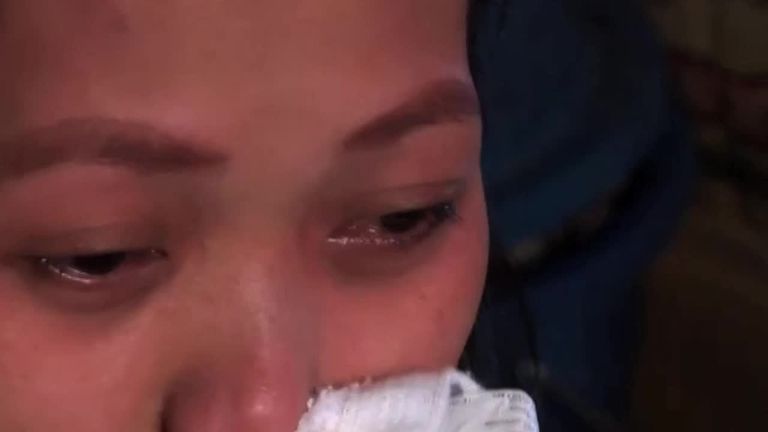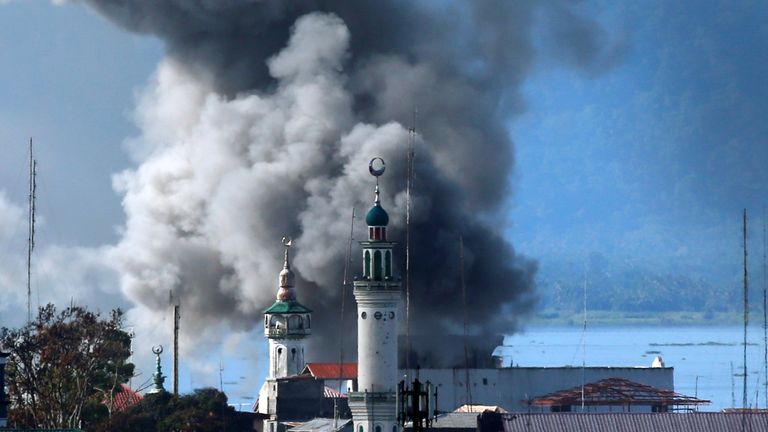Cholera breaks out in IS-Philippines war zone in Marawi
There are fears disease could spread unchecked after a quarter of a million people are forced to leave their homes amid fighting.
Wednesday 28 June 2017 01:52, UK
The first cases of cholera have been recorded in emergency shelters for families fleeing the conflict in the southern Philippines city of Marawi.
Almost a quarter of a million people have been forced to leave their homes, as the fight against IS-linked militants enters its second month.
Tens of thousands are now living in crowded evacuation centres, where the regional health secretary told Sky News conditions are "below the threshold of any human being".
The cholera cases have been isolated, but he said there was particular concern over the potential for the spread of Malaria and Dengue Fever, which is known to be a problem in Marawi.
"We want a regular uninterrupted supply of clean water, toilets for them to use, and of course decent living conditions," Kadil Sinolinding, Secretary of Health for Mindanao, told Sky News.
More than three thousand people are living at the centre, we saw four working toilets.
"The evacuation centre is way below the threshold of any human being," Mr Sinolinding said.
"But people content themselves. We are surviving. We are all survivors here."
The small rural clinic where he spoke has become a basic hospital.
We watched as a young boy was rushed in with a head injury.
He had fallen outside in the rain. He needed stitches, but was otherwise okay.
In a quiet corner, a mother sat comforting her son on a camp-bed as he was treated for severe dehydration.
Nearby one-year-old Abdul Salam Acmad was attached to a drip, suffering from diarrhoea, which can be especially dangerous in young children.
The nurses said his family had walked the three miles here from Marawi.
We were told four children died from the symptoms of diarrhoea before they could reach medical help after escaping the city.
Three were two years old or younger.
Outside children were lining up to have their photos taken to be registered for an emergency food programme.
A volunteer explained that they would be given three meals a day at the camp.
They are also organising special play sessions, where the children are encouraged to draw and to talk about what they've experienced, to try help them understand what is happening.
In one of the sleeping areas, we met a young mother nursing her 22-day-old baby girl.
Sittie Mohammed was nine-months pregnant when the militants arrived in Marawi.
She and her husband hid overnight, and escaped in the morning on his motorbike.
She gave birth to their daughter, Rohida, in the evacuation centre the following day.
"There was firing, guns near our house, we were very scared," she said, breaking down in tears as she begged the Philippines' president to end the conflict.
"I'm calling on President Duterte to finish this off so we can go home, so that we can live a peaceful life."
"I don't know what will happen to us now."





